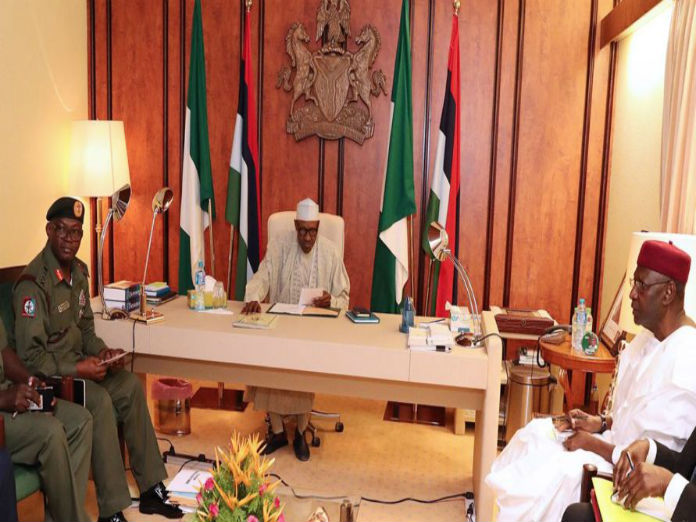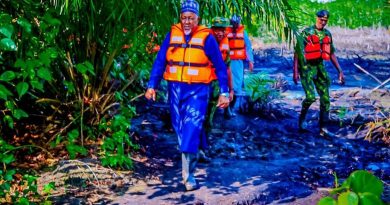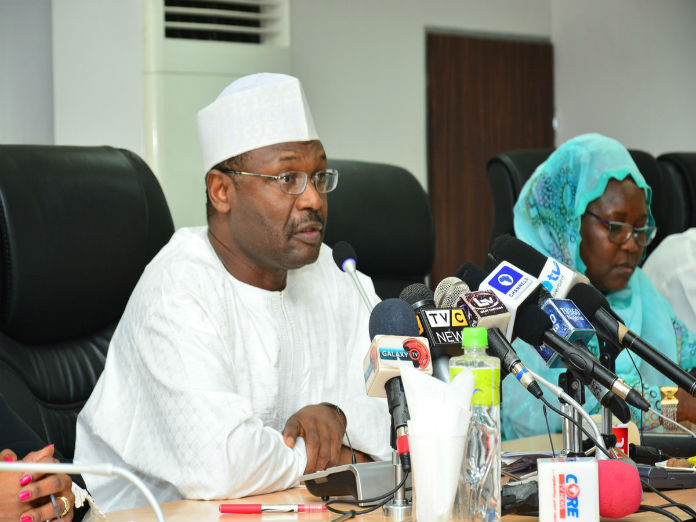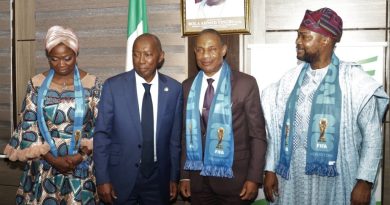FG bans importation of military, paramilitary uniforms
Governor of Central Bank of Nigeria (CBN), Mr. Godwin Emefiele held a meeting with the service chiefs and heads of paramilitary agencies to work out modalities of enforcing President Muhammadu Buhari’s order stopping further importation of uniforms.
Speaking at the meeting with the military and paramilitary heads in Abuja, Emefiele said the bank was in support of the federal government’s efforts to revive the cotton, textiles and garment sector.
He also said the stoppage was in conformity with Executive Order 003 mandating all ministries, departments and agencies to source their textile needs locally.
“We have the mandate of Mr. President to ensure that all uniformed services and theatre wears in hospitals and medical facilities be sourced locally from the Nigerian cotton, textile and garments sector” he said.
Already, he said the Bureau of Public Procurement (BPP) had been notified to enforce compliance among MDAs.
“Our model in achieving this presidential directive is to facilitate long term contracts (five years or more) with our textile and garment factories to produce uniforms for our armed forces and uniform services using local fabrics and textile materials.
“We are not naive of the fact that the nature of your jobs will warrant special quality and security around the production of your wares. My team will work with your nominees toward ensuring requisite quality and security associated with your uniforms.
“Your nominees will also join our team to inspect the various textiles and garment factories to ensure their readiness to be engaged on long term contracts to forestall breaches,” he said.
He added that the CBN will “work out payment terms that fit budget releases for uniforms for various organisations.”
Emefiele noted that the priority placed on the cotton and textile industry is hinged on the belief that “it has the capacity to transform Nigeria’s rural economy and revive the textile and garment sector by creating over two million jobs, improve internal revenue across three tiers of government, and reduce $4 billion import bill incurred annually on textile and apparel.”
He said the sector “has the potential to safeguard and earn foreign exchange and ultimately accelerate industrial development by making Nigeria a global player in the textile and apparel sectors.”
“We analysed the huge potentials that exists in the sector, identified the challenges militating against the sector’s contribution to Nigeria’s growth and development and presented quick wins for reviving the sector. Crucial to this resolve is the call for patriotism and the need to support local manufacturers of textile through patronage by MDAs as entrenched in Executive Order 003.
“Mr. President has directed full compliance with this Order as it will help in addressing the pressure on our foreign reserves through demands for forex for the importation of textile and clothing materials.”
“Based on the CBN’s interactions with stakeholders, it was revealed that MDAs have not made any significant order for uniforms or clothing materials from Nigerian textile manufacturers and garment companies,” said Emefiele.
The CBN governor added that the federal governments’ efforts at resuscitating the textile industry would not be actualized if they are not supported through local patronage among other incentives.
He also said the CBN had put in place necessary mechanisms to ensure use of high yielding varieties that will produce top quality fabrics and those that can compete in the international market.
“We have also observed that our textile factories are carrying huge quantities of unsold stock while our garment factories are idle due to lack of local patronage. We are optimistic that with your support, this trend can be reversed,” he added.
Source: News Gazette




